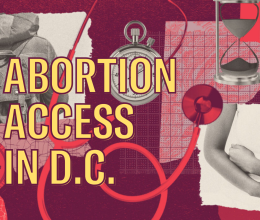
In May 2018, we filed this lawsuit on behalf of the National Family Planning and Reproductive Health Association to challenge the Trump administration’s plans to drastically alter the application criteria for the Title X Family Program, which issues grants for programs that in turn use the funds to provide family planning services. Signed into law in 1970 with broad bipartisan support, the Title X Family Planning Program has been providing patients, particularly low-income women and men, high-quality contraceptive services and related preventive care. Funds support health centers that provide a range of high-quality preventive health services, including breast and cervical cancer detection, screening and treatment for sexually transmitted diseases, HIV testing, and contraception. The federal program allows providers to serve four million low-income, uninsured, and underinsured individuals and families annually who would otherwise lack care. In 2015, services provided by health centers that received Title X funding helped women avert 822,300 unintended pregnancies. Without the services provided by Title X-funded health centers, the U.S. unintended pregnancy rate would have been 31 percent higher.
In February 2018, the Department of Health and Human Services (HHS) issued guidance for a new grant-making process. That announcement unlawfully shifts the program away from its core mission of making contraception and related clinical services available to individuals regardless of their ability to pay, instead favoring ideologically driven priorities that are contrary to and impermissible under Title X’s statute and regulations. For example, instead of promoting the provision of high-quality care centered on patient needs, the guidelines suggest that entities who promote abstinence-only messages, and who are affiliated with religious organizations, will be given preference.
We moved for a preliminary injunction; the government has moved to dismiss the case. The court heard oral argument on these motions and in July 2018, issued its decision that the new scoring criteria don’t count as a final agency action since the criteria are only advisory, and are therefore not subject to judicial review.
The court also found that the changes don’t call for a notice-and-comment rulemaking. The court concluded that, in any event, the new rules are consistent with the statutory requirements. We appealed and filed a motion for an injunction while our appeal was pending. The district court heard argument on that motion in July.
On July 31st, 2018, the District of Columbia’s attorney general joined attorneys general from eighteen other states to sign on to an amicus brief filed in support of our position.
In November 2019, the appeals court ruled that the case had become moot in light of the funding of the clinics.




